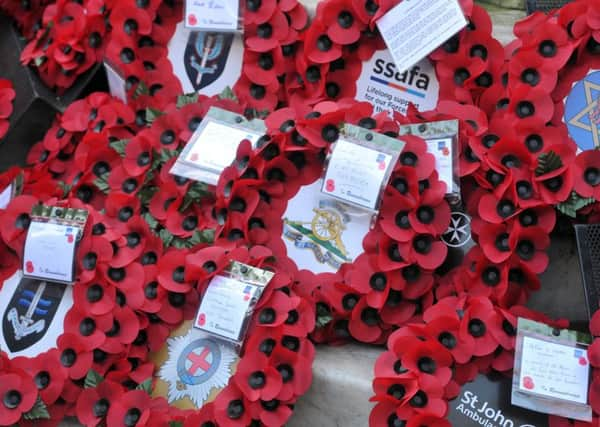Rev Canon Sam Corley column: What might it mean to remember rightly?


Speaking in November1987, a year after being awarded the Nobel Peace Prize, he said: ‘We remember because we believe that, in spite of the past, and its horrors the world is worthy of salvation: and salvation, like redemption, can be found only in memory’.
It won’t be long before Remembrance Sunday is with us. With colleagues from other faiths, I shall be at the Cenotaph in Victoria Gardens leading the city’s annual Act of Remembrance, which this year has a special poignancy as we mark the 100th anniversary of the end of the war that was meant to end all wars. We remember, lest we forget the horror, but also remember lest we forget that the world is worthy of salvation.
Advertisement
Hide AdAdvertisement
Hide AdOf course, memories can be both positive and negative. Remembering can evoke joy and happiness and can resource us with courage and hope. But at other times memories can stir up the kind of pain and fear that leads to hurt and withdrawal. And sometimes remembering the past can even trigger anger and prejudice that can fuel hatred and a desire for revenge.
All of us will recognise something of that dynamic at work within us as the past continues to shape and form us. And we see it on the global stage too. So how do we handle difficult memories like those of war? What might it mean to remember rightly? To remember in a way that takes the past seriously, but doesn’t force us to repress it or consign us to constantly reliving our own mistakes and those of others?
For people of faith the beginnings of an answer to those questions starts with the God who sees the whole story, the God who knows the whole truth far better than we ourselves can know. In God we find truth that is impartial and infallible. Unlike us and our experiences and our memories, we find in God a source of truth we can rely on: a God who remembers even when we forget or can no longer remember.
And from that reality of God, so grounded in truth, we receive the offer of a new identity. No longer need we be defined by our actions or by the effect of the actions of others upon us.
Advertisement
Hide AdAdvertisement
Hide AdInstead we can be defined by how God relates to us – shouldering our sin, tasting our suffering – redeeming, saving, resurrecting – quite literally putting us back together ‘re-membering’ us. God offers us a new identity that is more real and concrete than what we might ever have constructed by ourselves.
That kind of an identity sets us free to dream of, even work for, a different future; a future that isn’t simply an extension of our past, but one that comes from outside. The God of truth creates for us new possibilities – even of reconciliation between enemies.
That kind of dealing with the reality of the past may not always happen – and even if it does it may well have to remain fallible and provisional in this world. But still a new future can be glimpsed and tasted and we can stretch ourselves towards it.
Which is why Wiesel was right. Salvation is found in memory. By recalling the past we are challenged to interact with truth and remember rightly. But we are also offered a new identity in the present which enables us to look back without needing to pretend or to be afraid. And we are called towards an open future of new possibilities - for ourselves and for the whole world.
Advertisement
Hide AdAdvertisement
Hide AdAnd so we remember. Lest we forget; for along that road we lose more than we could possible imagine. But if we dare to choose to remember then who knows where the past might take us.
The Reverend Canon Sam Corley is the Rector of Leeds.